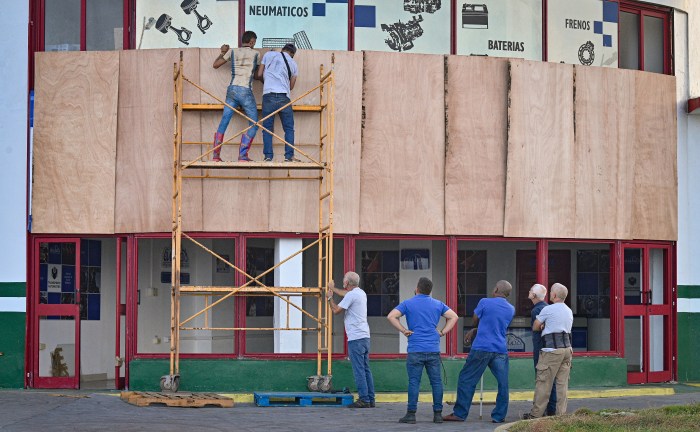A Cuban exile flotilla shot bright fireworks into the sky only about 13 miles from the Havana coast on Dec. 9 in a defiant show of support for dissidents on the Spanish-speaking Caribbean island.
But the Cuban government branded the flotilla as a “provocation,” detained tens of dissidents on the eve of International Human rights Day and sent security agents to shut off parts of Havana’s seaside Malecón Boulevard.
Cuba’s Foreign Ministry said the government has expressed its concerns to Washington.
The U.S. government “is perfectly informed of the Cuban government’s concern with this type of provocation,” René Mujica, a top analyst in the ministry’s North American affairs section, told reporters here.
The State Department had urged organizers of the flotilla, the Miami-based Democracy Movement, and the Cuban government “to exercise caution and restraint” during Friday’s fireworks.
“We have also made it clear to Cuban authorities, as well as participants in this event, that the U.S. government would punish any violation of U.S. laws,” said spokesman William Ostick.
The “Lights of Liberty” from the eight-inch shells were clearly visible in Havana despite a light rain, Cuban blogger Yoani Sanchez tweeted.
“Despite the rain, controls and arrests, the flotilla fireworks can be seen.” she added. “Havana full of lights, and short of human rights.”
“Our goal has been met,” flotilla organizer Ramon Saul Sanchez told reporters after the first fireworks went up shortly after 7 pm. Despite the Cuban complaint, he added, “what we have here is a party!”
The flotilla of at least four vessels began setting off its fireworks when it reached “Democracy Point” — 12.5 miles from Havana and only half-a-mile from Cuba’s territorial waters.
Dissident Baptist Pastor Mario Felix Lleonart told reporters that many people were gathering along the Malecon, despite a light rain, apparently hoping to see the upcoming fireworks.
Democracy Movement officials said their vessels, carrying about 60 exiles, left Key West and Marathon Key, Florida early Dec. 9, sailing through three-foot waves to reach the designated launch point for the three-hour fireworks show.
They said participants prayed and sang the Cuban national anthem before setting off for the coast off Havana, where they hoped that some dissidents in the capital would support the fireworks show with a “pots-and-pans” protest of their own.
Blogger Yoani Sanchez said that Cuban State Security agents in plain clothes and posted in streets leading to the Malecón were turning people away from the seawall, where Havana residents gather nightly to walk and meet friends and lovers.
The Democracy Movement has organized several such flotillas in the past, including two that used fireworks.
But this time, the 43-foot “Musele Prince” was firing 8-inch shells, compared to the 6-inch fireworks used in the past.
The Communist Party’s Granma newspaper also reported on Dec. 9 that five persons drowned when their boat sank off the coast of Santa Cruz del Norte, about 30 miles east of Havana, as they tried to escape the island.
Another 18 would-be refugees were rescued by the military and oil workers during the incident in late November, Granma added. Cuba’s government-controlled news media seldom reports on such incidents.





















